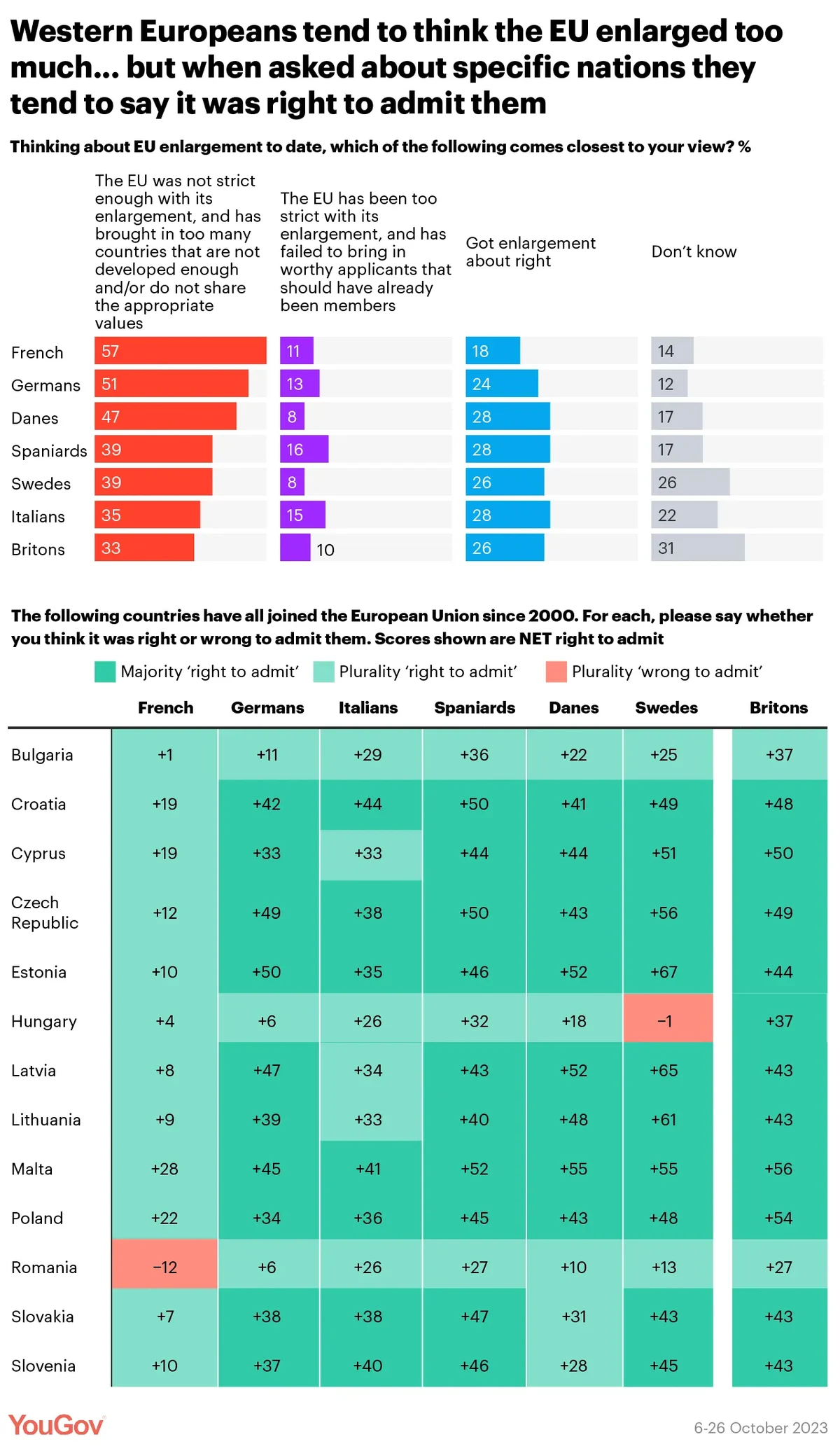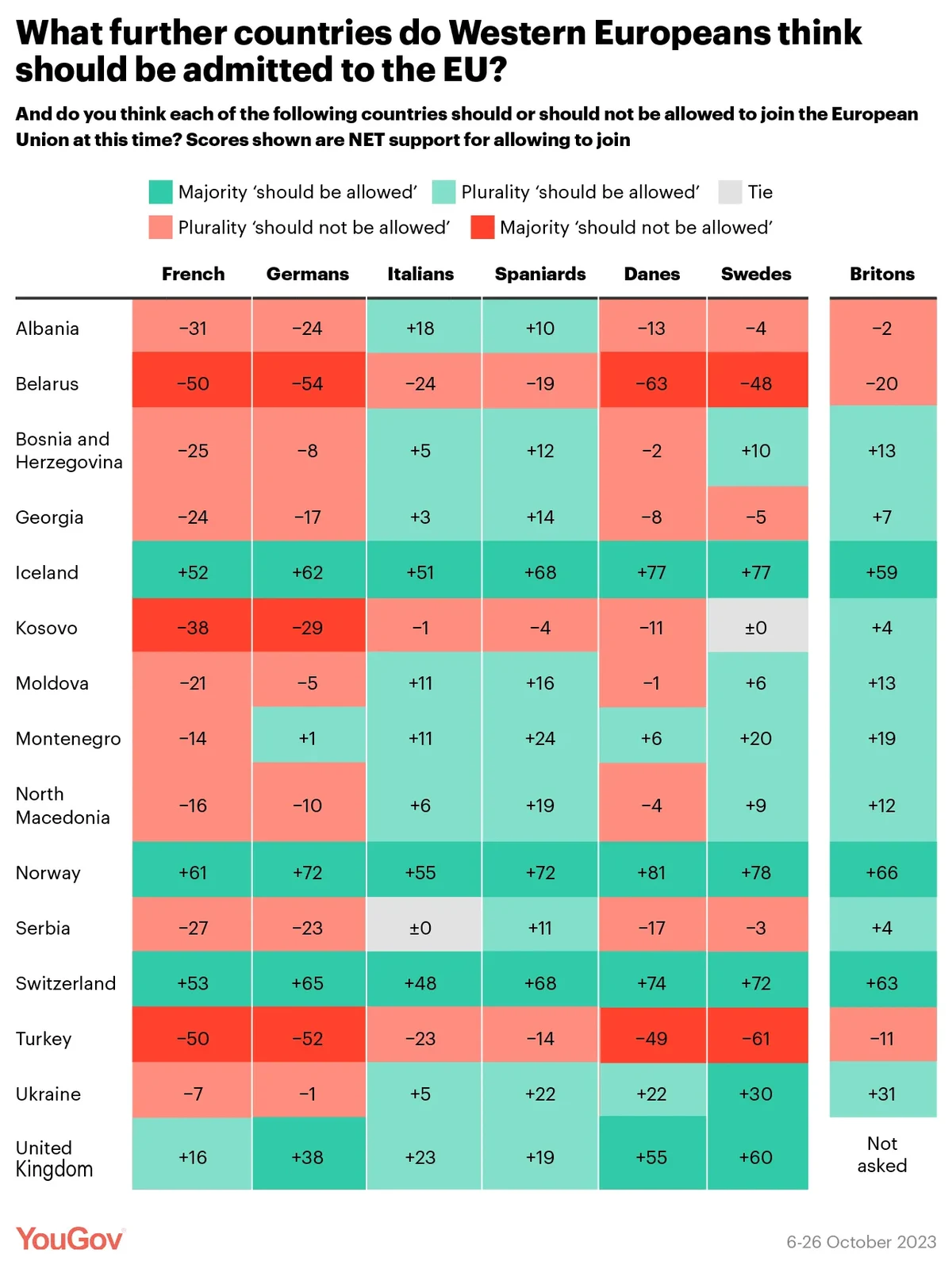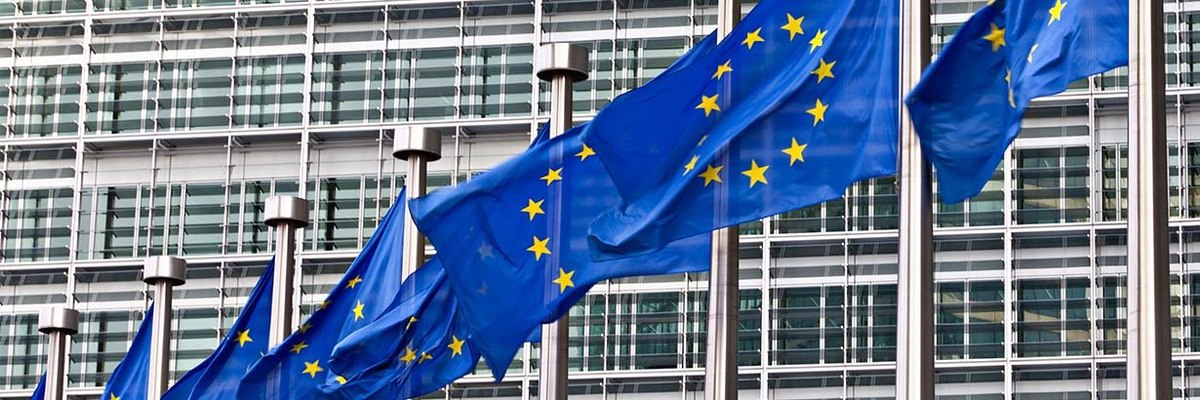YouGov Eurotrack study examines attitudes towards the EU
Earlier in the year, reports emerged of Franco-Germans proposals for a new structure for European integration, which would see an ‘inner circle’ of countries committed to further integration, as well as a new tier of ‘associate EU membership’ that could include countries like Norway, Switzerland and the UK.
French president Emmanuel Macron is reported to favour the proposals, and had hoped that the UK’s Labour party – likely to form the next government – could be attracted with the associate membership option.
Now a new YouGov Eurotrack study finds support for the proposed structure across six EU member states in Western Europe – Denmark, France, Germany, Italy, Spain and Sweden – as well as Great Britain.
However, in only one nation surveyed – Spain – do a majority support introducing this structure, at 56%. Around four in ten Germans (42%) and Italians (40%) also back the move, with 28-30% opposed.
In France the proposal is backed by 35% to 30%, with Danes answering at a similar rate (36% vs 31%). Swedes, however, are divided 31% to 30%.
Over in Britain, 35% support the new structure, while 24% are opposed.
It should be noted that “don’t know” rates are relatively high, ranging from 24-42% - unsurprising for a hypothetical and highly technical geopolitical proposal.
Asked subsequently which of the proposed tiers they would want to be a part of, there is a noticeable lead for the ‘inner circle’ option in Spain (39%) and Germany (31%) compared to the other options.
Denmark and Sweden tend to express a preference for the ‘outer circle’, at 28% and 23% respectively.
In France, Italy, and Britain, however, opinion is far more evenly divided, with preferences for the inner circle, outer circle, associate membership, and sitting outside of any structure all receiving 14-19% support.
Should there be greater political integration in the EU?
An alternative question asked Europeans about the EU evolving in terms of powers rather than structure – whether more power and decision making should shift towards the EU, or back towards national governments.
In Denmark, Sweden, Germany and Spain, the most common response is that the status quo should be maintained (36-46%). In Spain, however, this preference (36%) is almost tied with a desire to see greater political integration (34%), while just 12% wanted to see more powers passed back to national governments.
The most common preference in France is for less political integration (28%), closely tied with keeping things about where they are now (25%). In Italy there is also a close split, with 27% preferring greater EU integration, 25% the status quo, and 21% less integration.
Between 6-11% in each country want to see the EU disband entirely.
What do Europeans think of past and future EU enlargement?
There is a sense in Western Europe that the EU was not strict enough with its enlargement, and has brought in too many countries that are not developed enough and/or do not share the appropriate values. This was the most common answer in each country surveyed, at 33-57%.
However, when we asked respondents to say whether they thought it was right or wrong to admit each individual country that has joined the EU since 2000, there is almost universally a view that it was right to do so.
The biggest exception is French attitudes towards Romania, with 40% saying it was wrong to admit the country compared to 28% who think it was right. The French are also divided on Bulgaria, and are joined by the Swedes in being divided on Hungary.

General expectation in the countries surveyed is that the number of EU members will increase over the next 30 years (44-63%).
When it comes to bringing further countries into the EU, there is strong support (more than six in ten) for adding those affluent nations who have not yet joined – Iceland, Norway and Switzerland.
There is also overall support in each country to readmit the UK – although enthusiasm for this prospect is notably lower in France, Italy and Spain.

Do Europeans have a positive view of the EU and EU membership?
The EU is especially popular in Spain and Denmark, where 72-73% have a favourable opinion of the institution compared to only 22-23% with an unfavourable one. A significant majority of Germans (62%) and Swedes (60%) also have a positive view. Despite Brexit, the EU is now seen favourably in the UK by 51% to 36%.
By contrast, the French and Italians are divided on the EU, the former by 46% to 45% and the latter by 48% to 45%.
This division in France and Italy coincides with a tendency to think that being a part of the EU has been detrimental. More than four in ten French people (43%) and a similar number of Italians (40%) say their countries have been worse off for their EU membership. One in five in each country (20%) think membership has made no difference, while 26% in France and 31% in Italy think their countries are better off for their being a part of the EU.
The most common view in Sweden and Germany is that they are better off because of the EU (although at 37% and 46% respectively, this is not the majority view), while most in Spain (58%) and Denmark (65%) see membership as having been beneficial.
What impact has the EU had?
When asked to rate the EU’s impact on Europe across eight different areas, each country’s public gives a net positive score overall.
In Sweden, Germany and France, the positive impact people are most likely to recognise is that on ‘movement of citizens in Europe’, with 56% to 67% saying the EU has been good for this. Only 12-23% think the EU has had a negative impact on the movement of Europeans around the continent.
For Danes and Spaniards, the EU’s impact on human rights in Europe stands out the most, with 66-67% saying the institution has had a positive impact and only 9-11% a negative one.
Italians are most likely to say that the EU has had a positive impact on ‘European culture and heritage’ at 48%, with 17% taking the opposing view.
For Britons, the EU’s main success story is peace on the continent: 57% say the EU has had a positive impact here, and only 9% disagree.
At the other end of the scale, it is noticeable that Italians are torn on the EU’s economic impact, being split 35% positive to 32% negative (and 23% no impact). The French are likewise more sceptical here than other nations, with 40% saying the EU has had a positive impact but 30% a negative one.
Photo: Getty









